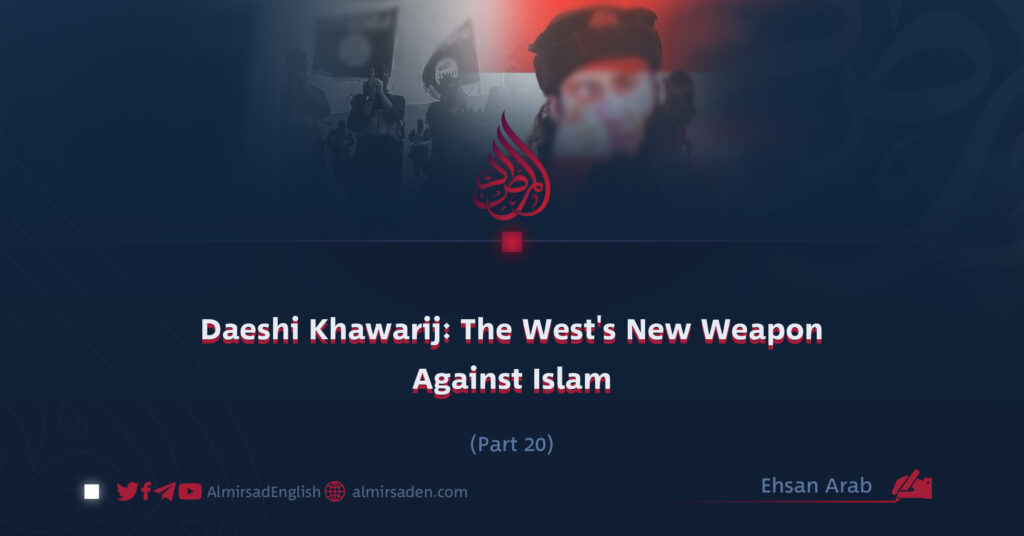Part 20
Written by: Ehsan Arab
Facilitating the Plunder of Natural Resources in Islamic Lands
The emergence of the notorious Khawarij faction, ISIS, in countries such as Iraq, Syria, and parts of North Africa—though superficially wrapped in the rhetoric of establishing an Islamic Caliphate and protecting the Muslim Ummah—ultimately facilitated direct and indirect intervention by Western powers across the Islamic world.
While the global narrative promoted these interventions as part of a noble struggle to eliminate ISIS, in reality, they became instruments of systematic exploitation. Behind the façade of counterterrorism, Western governments and their allies embarked on a calculated campaign to loot the national and natural wealth of Muslim countries. ISIS thus served not merely as a terrorist entity but as a strategic proxy, enabling imperial powers to gain access to vital resources and weaken sovereign Muslim nations.
In the wake of ISIS’s rise, the United States, along with dozens of Western countries and their regional partners, swiftly deployed military forces, private security firms, and corporate contractors to Syria, Iraq, and Libya. While their official justification was the fight against ISIS, it soon became apparent that the real objective was not to confront the group militarily, but to secure control over oil fields, phosphate mines, gas reserves, and other valuable resources.
In Syria, at a time when the population was engulfed in poverty, hunger, and widespread destruction—with living standards deteriorating by the day—U.S. forces advanced eastward under the pretense of combating ISIS. They took control of extensive oil infrastructure in the Deir ez-Zor and Al-Hasakah, continuing extraction operations for the benefit of Western corporations.
Syrian officials consistently reported that the United States was smuggling more than 66,000 barrels of oil out of the country each day. This illicit activity, according to the Syrian government, inflicted an annual economic loss exceeding $19 billion. A similar pattern unfolded in Iraq, where the resource-rich provinces of Kirkuk, Mosul, and Basra were gradually brought under the indirect control of Western firms under the guise of ISIS eradication.
During this period, American and British corporations such as ExxonMobil and BP secured long-term contracts for oil extraction, ensuring their dominance over Iraq’s energy sector. Meanwhile, the oppressed Iraqi people received little to no benefit from their own natural wealth. Furthermore, contracts for the extraction of phosphate and metal ores in areas reclaimed from ISIS were awarded to Western companies—cementing an economic model that left Iraq’s economy enfeebled, dependent, and effectively tethered to foreign influence.
Libya, too, became a victim of this imperial design. Following the overthrow of Muammar Gaddafi’s government and the abrupt and suspicious emergence of ISIS, Western powers—primarily France, Italy, and the United States—found pretext for military intervention. These nations not only secured control over Libya’s oil reserves but were also implicated in the looting of the country’s southern gold mines and priceless historical artifacts. Reports surfaced of extensive smuggling operations that trafficked Libya’s ancient cultural heritage to European markets, all under the pretense of cutting off ISIS’s financial lifelines.
What remained in the wake of this orchestrated crisis were devastated nations, shattered economies, and looted resources. As the enemies of Islam enriched themselves through the theft of oil, gas, gold, phosphates, and cultural treasures, the Muslim world was left to grapple with the ruins.
This painful reality exposes a harsh truth: ISIS was not merely a rogue terrorist group, but a carefully exploited instrument in a broader colonial enterprise. It was a strategic tool wielded by the West to open the gates for long-term exploitation and systemic looting of Islamic lands—an enduring tragedy masquerading as a war on terror.
